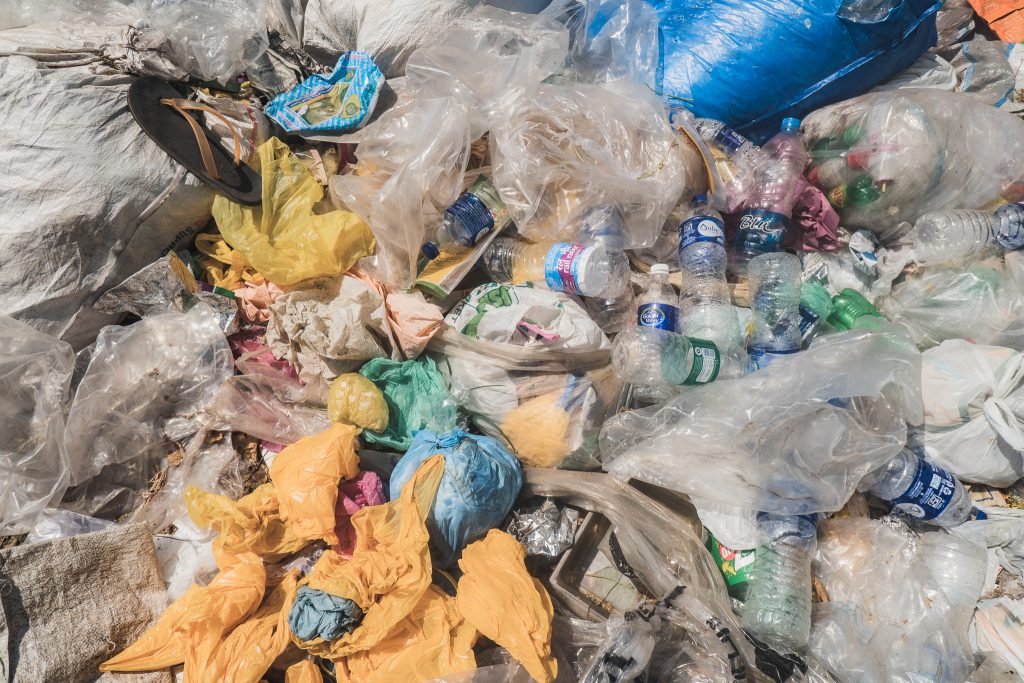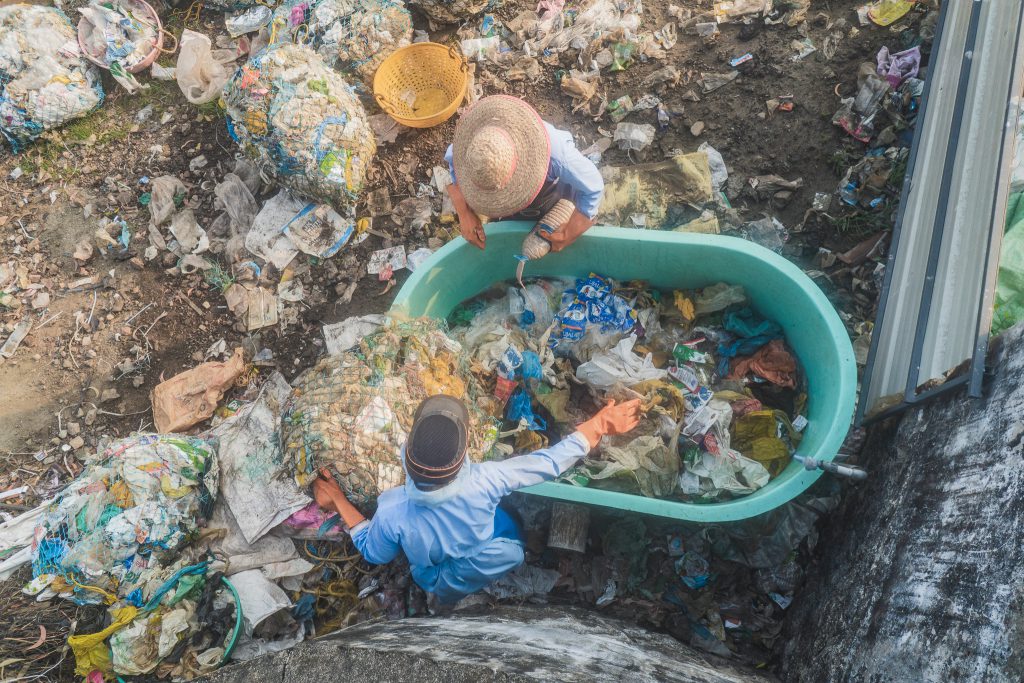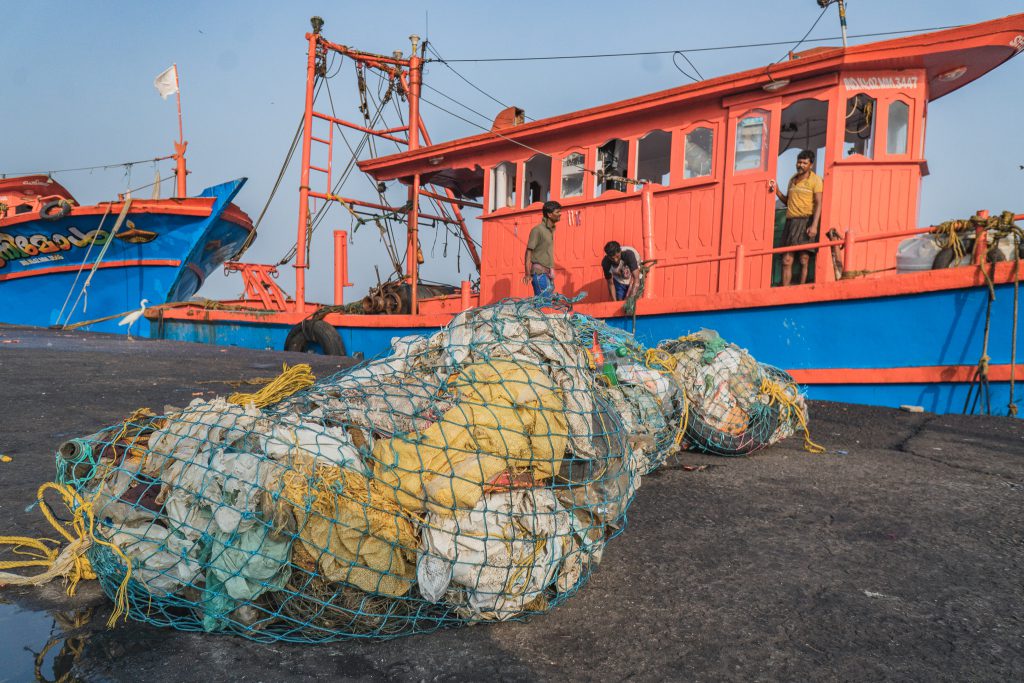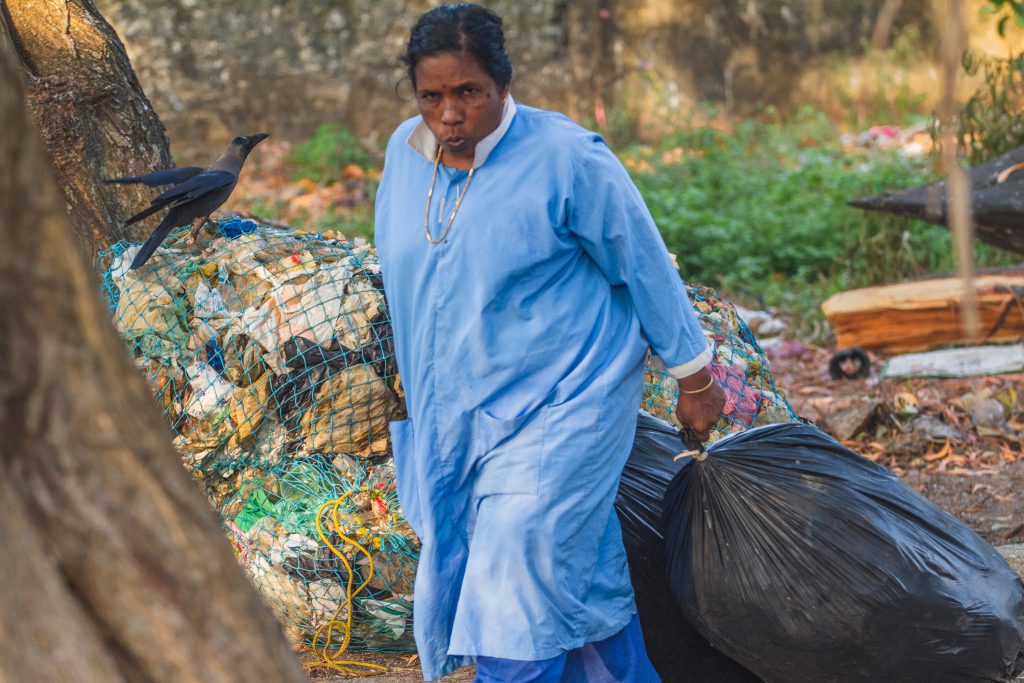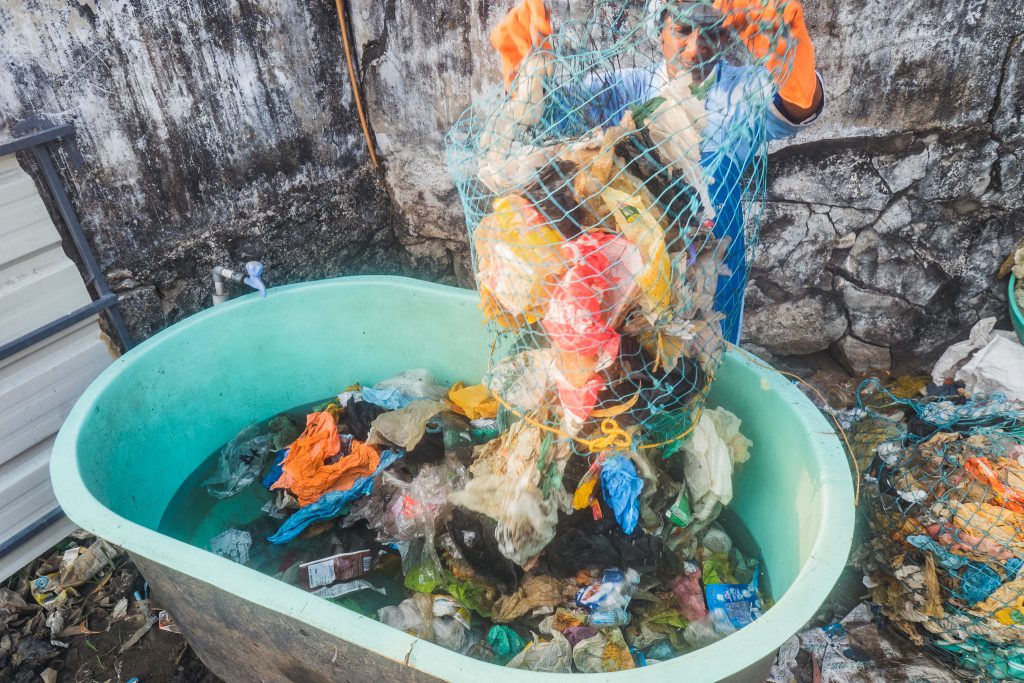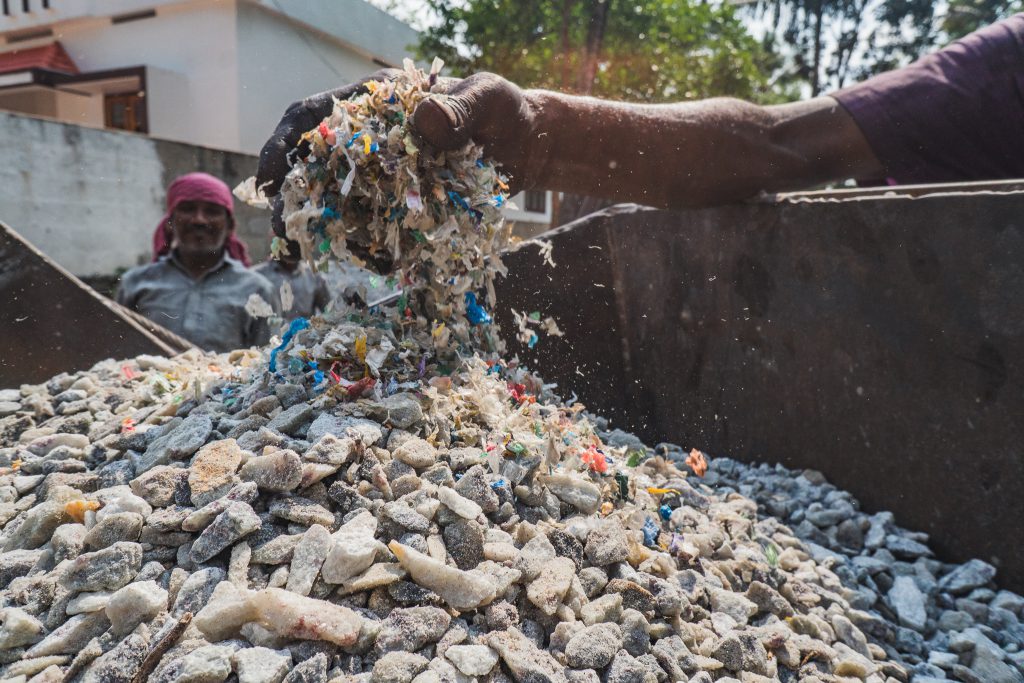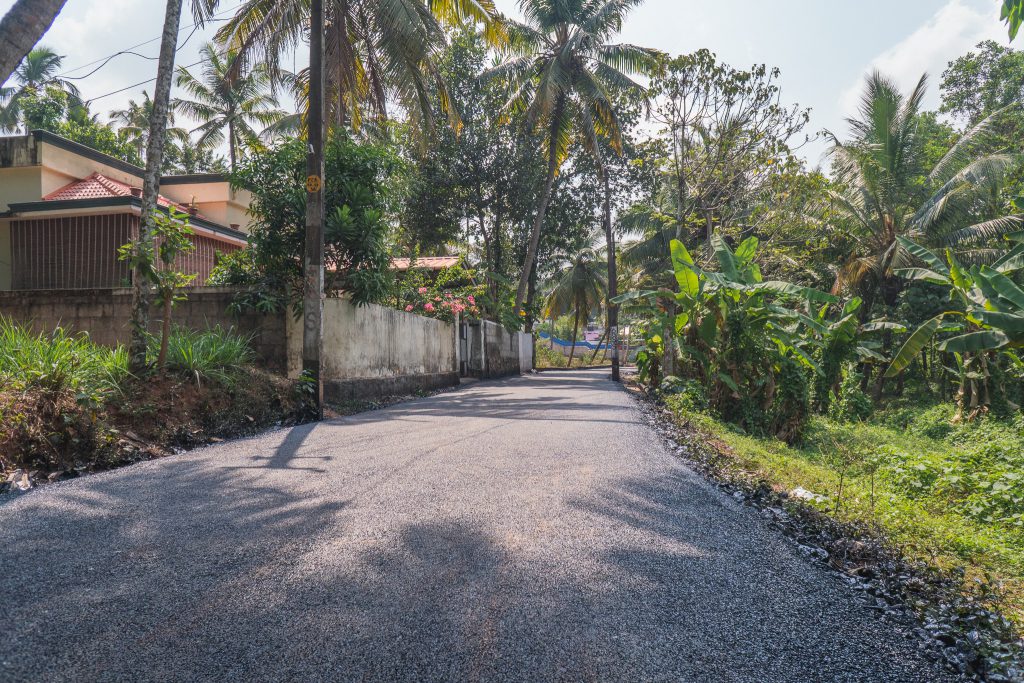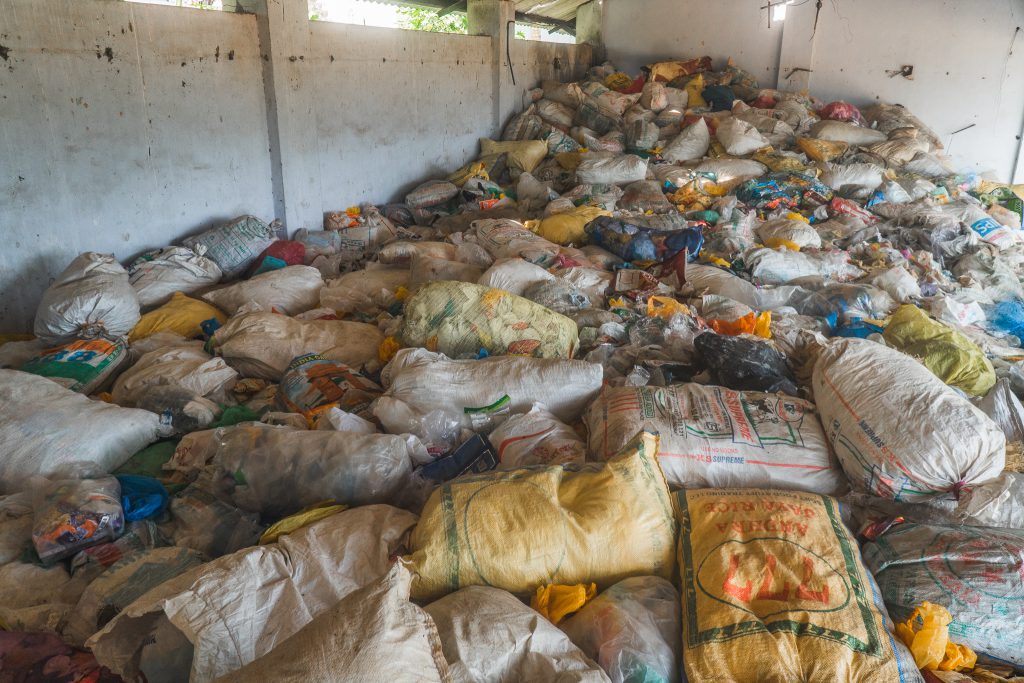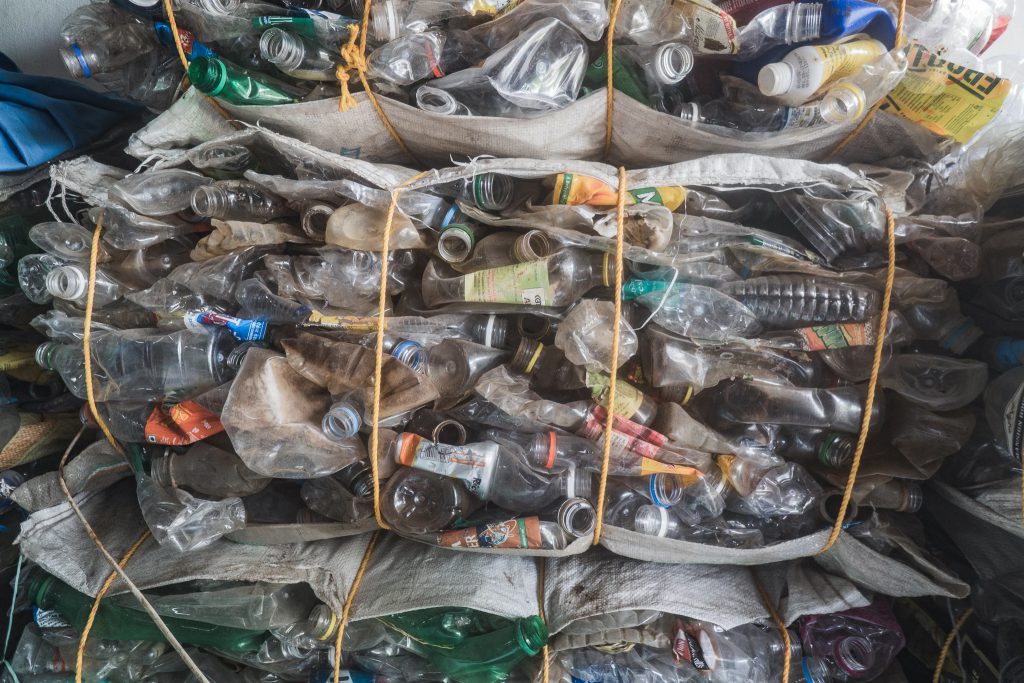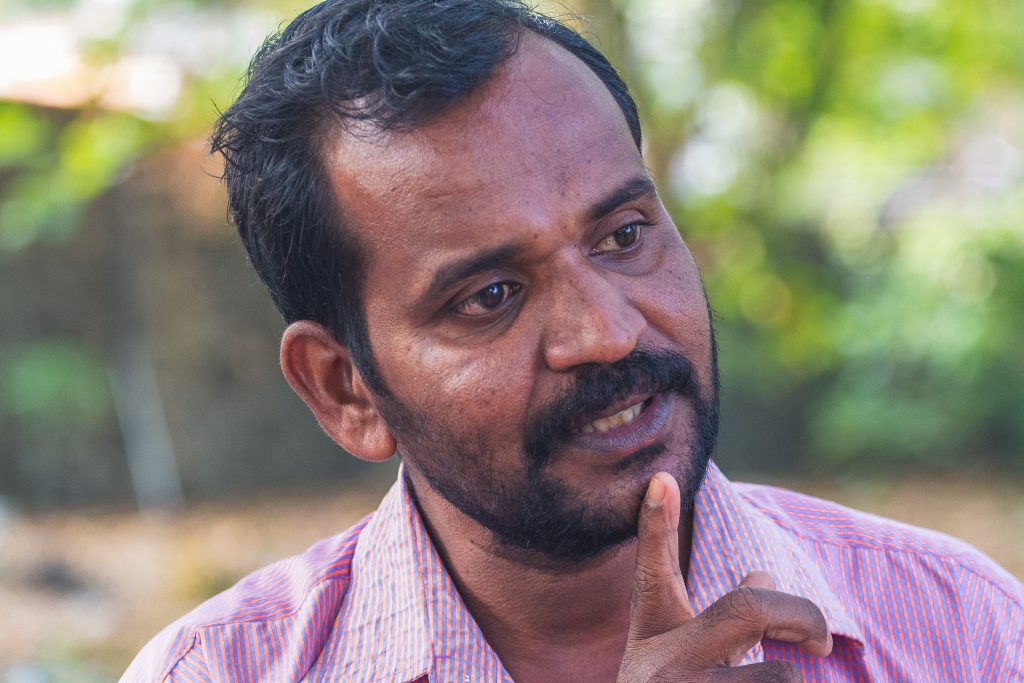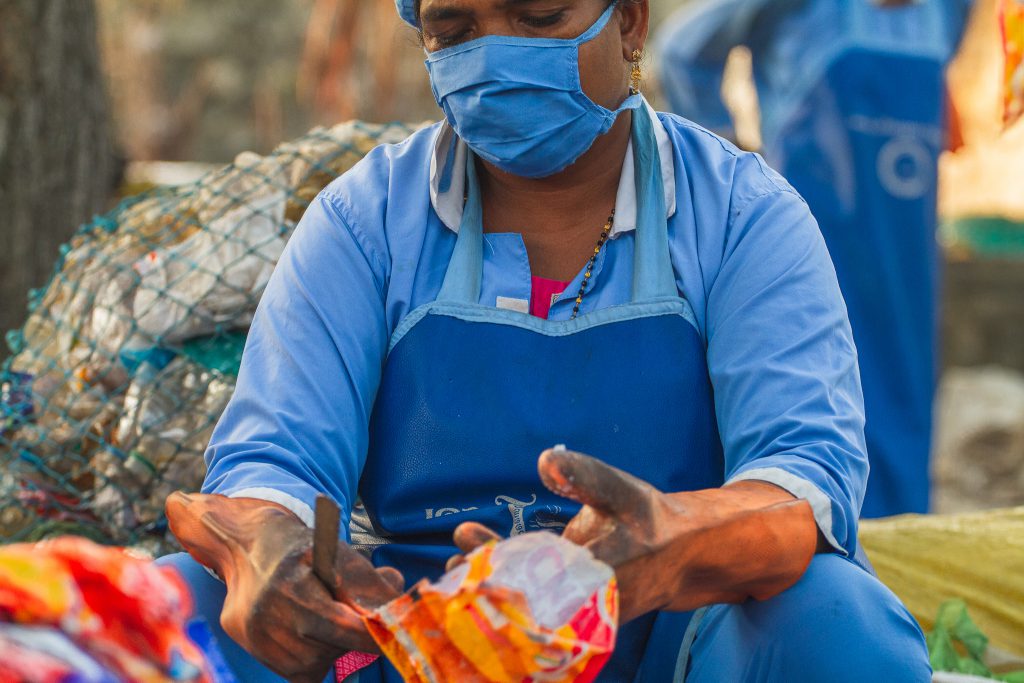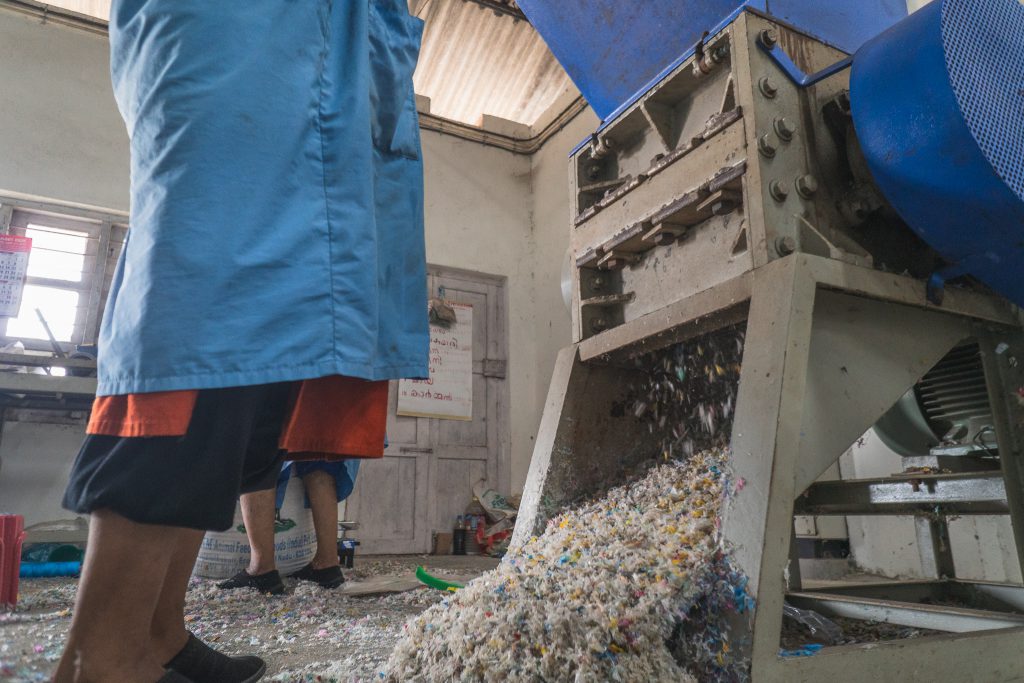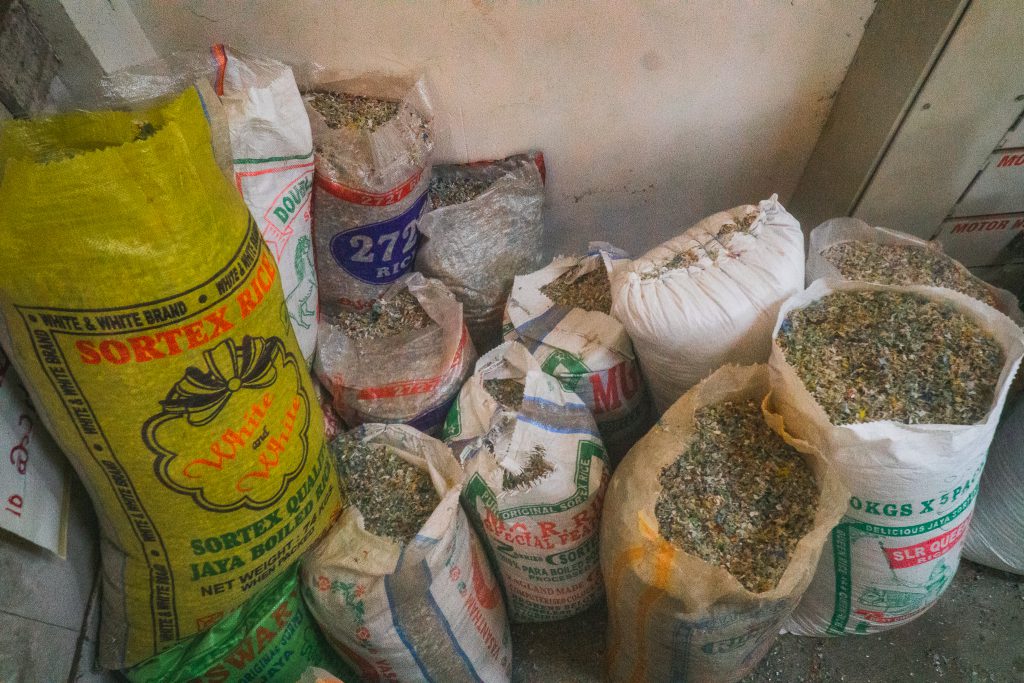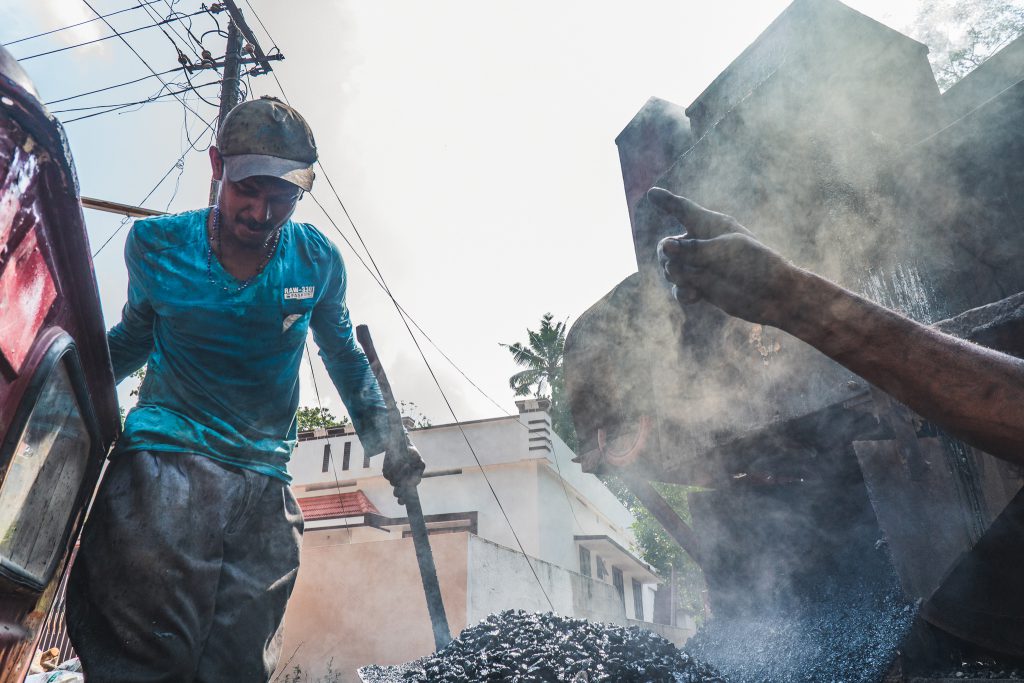“Kerala is God’s own country”, this was the expression created a couple of decades ago to promote this state of South India, blessed with exuberant nature and culture. But for a couple of years, this paradise has also been protected by its own inhabitants, the fishermen. Visiting this state, we immediately notice how the safeguard of the environment is an inclusive commitment and really signed by all: political forces, dedicated associations, but above all by Keralites, positioned in the front row and ready to collaborate. Kerala is tangibly a virtuous example, made up of ideas and projects that can also be modulated for other Indian states and beyond. One of these, for example, is “Suchitwa sagaram, Sundara sagaram” (clean sea, clean beach), launched in July 2017 by the minister for fish policies. J. Mercykutty Amma, who is one of the few female faces in the politics of a still highly patriarchal country, has succeeded in bringing together government and independent agencies to adopt the best plastic recycling solution. The result of an extended collaboration between the following realities: the Dipart. IND. Ittica, Dipart. of Ing. Portuale, Suchitwa Mission, the Ass. Women Fishermen, the Ag. Gov. NETFISH and the Ass. boat owners’s of the Kollam district, was to implement a sorting and processing area of plastic, coming from the sea, inside the main ports of the city of Kollam. Each type of plastic component is reduced to a pulp and then added to the liquid bitumen, giving life to a long-lasting, highly impermeable and environmentally friendly mixture with which to redo the road surface, which is subject to continuous disturbances caused by the monsoon rains.
The “Suchitwa sagaram, Sundara sagaram” project saw Kollam (Kerala) as a pilot experience, specifically the ports of Neendakara and Saktikhulangara, where every morning around 6000 fishermen go off the Arabian Sea to throw or withdraw nets, which are more and more filled with plastic than fish. Collecting the testimonies from the coast guard of Neendakara, but above all thanks to the collaboration of the locals, we learned how the virtuous assembly line was set up that is activated every morning at the docks of these two ports. To orchestrate the parties involved is Joseph Mendez, a proud Keralita ready to protect the Sea, but above all ready to support his Community with courage, and with a contagious enthusiasm that invites you to know the faces and hands of the men and women who daily, and with the fullness of the smile that distinguishes this people, they carry out this project. J. Mendez, as Assistant Supervisor, coordinates the collection and sorting of plastic waste that fishermen find at sea. Every morning, J. Mendez delivers to each fishing vessel a net for the collection of plastic and when they return to port a person in charge takes care of collecting them and quantifying the worrying number of bottles, old nets, bags and an endless variety of plastic fragments , which are often also found in the belly of fished animals. The first reports recorded that in 12 months of operation and collaboration by the entire fishing community, 25 tons of plastic were removed from the coasts of Kerala.
The plastic is then sorted according to its type, cut into small sections, washed with fresh water and dried in the sun. All operations that are carried out with dedication and a lot of simplicity by 19 “Ladies”, so we were presented by J. Mendez. His role goes far beyond that of Supervisor, in fact, for the fishing community and above all for these “Ladies”, he represents a sort of guardian angel. Thanks to this project, Sheena, Retna Usha, Chandra Lekha, Molly, Siloma, Lizy, Sisy, Suganthy, Sumi, Merin, Shyny, Mary, Nalini, Shobha, Shobhana, Carmel, Sahaya Rani, Julie and Soumya were able to find employment. safe and regulated by decent shifts and salaries. Furthermore, each of them received specialized training and it was also possible to balance the fishing sector otherwise dominated by men.
Once the plastic has been cleaned and dried it is transported to the main port of Needakara. A special machine will transform the plastic into cubes and sheets that will reinforce the tightness of the roads subject to monsoons, floods and intense traffic flows. On 11 March 2019, thanks to the supervision of the Port Engineering Department, the first 2km stretch of road between Keralapuram and Kovilmukku (Kollam) was built, using 500 kg of plastic granules. This new blend is becoming more and more in demand in India, as it makes the roads more resistant to torrential rains and strong heat. In fact, the melting point for plastic roads is around 66 ° C, compared to 50 ° C on conventional roads. Furthermore, the use of recycled plastic is a cheaper alternative to the plastic additives commonly used for road surfaces. Every kilometer of plastic road uses the equivalent of a million plastic bags, saving about a ton of asphalt and costing 8% less. And then, plastic roads help create jobs. The example of the fishermen of Kollam is bringing all the young people of the region to engage, every month, in cleaning the canals which in some cases are literally covered with plastic of every color and shape. The need for the presence and dissemination of these models to be inspired is fundamental in a country like India, considering that 90% of plastic waste in the world’s oceans is transported there by only 10 rivers – two of which are in India and the Indian Ocean is suffocated by the second highest amount of plastic in the oceans.
“That morning we were contaminated by the enthusiasm of the fishing community, of J. Mendez, of the female team and of the rest of the local community. We hope that the Kollam program will become an easily replicable model and that its strength, the cohesion of the local population to improve the environment and their own living conditions, is the first message to be translated in all languages and dialects.”
Strade di plastica tra mare e terra, i pescatori del Kerala entrano in azione
“Kerala is God’s own country”, questa fu l’espressione coniata un paio di decenni fa per promuovere a livello turistico questo stato dell’India del Sud, benedetto da una natura e cultura esuberanti. Ma da un paio di anni, questo paradiso è protetto anche dai suoi stessi abitanti, i pescatori. Visitando questo stato si nota sin da subito come la salvaguardia dell’ambiente sia un impegno inclusivo e realmente sottoscritto da tutti: forze politiche, associazioni dedicate, ma soprattutto dai Keraliti, posizionati in prima fila e pronti a collaborare. Il Kerala è tangibilmente un esempio virtuoso, fatto di idee e progetti modulabili anche per altri stati indiani e non solo. Uno di questi, ad esempio, è “Suchitwa sagaram, Sundara sagaram” (mare pulito, spiaggia pulita), lanciato nel luglio del 2017 dalla ministra per le politiche ittiche. J. Mercykutty Amma, che è uno dei pochi volti femminili della politica di un paese ancora fortemente patriarcale, è riuscita a mettere in contatto agenzie governative e indipendenti per adottare la migliore soluzione di riciclaggio della plastica. Il risultato di un’allargata collaborazione tra le seguenti realtà: il Dipart. dell’Ind. Ittica, Dipart. di Ing. Portuale, Suchitwa Mission, l’Ass. Donne Pescatrici, l’Ag. Gov. NETFISH e l’Ass. boat owners’s del distretto di Kollam, è stato quello implementare un’area di smistamento e lavorazione della plastica, proveniente dal mare, all’interno dei principali porti del la città di Kollam. Ogni tipologia di componente plastico viene ridotto in poltiglia e poi aggiunto al bitume liquido, dando vita a una miscela duratura, altamente impermeabile ed ecocompatibile con cui rifare il manto stradale, che è soggetto a continui dissestamenti causati delle piogge monsoniche.
Il progetto “Suchitwa sagaram, Sundara sagaram”ha visto come esperienza pilota Kollam (Kerala), nello specifico i porti di Neendakara e Saktikhulangara, dove ogni mattina circa 6000 pescatori si spingono al largo del Mare Arabico per gettare o ritirare le reti, che sono sempre più colme di plastica che di pesci. Raccogliendo le testimonianze presso la guardia costiera di Neendakara, ma soprattutto grazie alla collaborazione dei locali, abbiamo appreso com’è stata strutturata la virtuosa catena di montaggio che si attiva ogni mattina presso le banchine di questi due porti. A orchestrare le parti coinvolte è Joseph Mendez, un orgoglioso Keralita pronto a proteggere il Mare, ma soprattuto pronto a supportare la sua Comunità con coraggio, e con un entusiasmo contagioso che ti invita a conoscere i volti e le mani degli uomini e delle donne che quotidianamente, e con la pienezza del sorriso che contraddistingue questo popolo, portano avanti questo progetto. J. Mendez, in qualità di Assistant Supervisor coordina la raccolta e lo smistamento dei rifiuti plastici che i pescatori ritrovano in mare. Tutte le mattine, J. Mendez consegna ad ogni peschereccio una rete per la collezione della plastica e al loro rientro in porto una persona incaricata provvede a ritirarle e a quantificare il preoccupante numero di bottiglie, vecchie reti, sacchetti e una varietà sterminata di frammenti di plastica, che spesso vengono anche trovati nella pancia degli animali pescati. I primi report hanno registrato che in 12 mesi di operato e collaborazione da parte dell’intera comunità dei pescatori sono state rimosse 25 tonnellate di plastica dalle coste del Kerala.
La plastica viene successivamente smistata a seconda della sua tipologia, tagliata in piccole sezioni, lavata con acqua dolce e asciugata al sole. Tutte operazioni che vengono svolte con dedizione e molta semplicità da 19 “Ladies”, così ci sono state presentate da J. Mendez. Il suo ruolo va ben oltre quello di Supervisor, infatti, per la comunità dei pescatori e soprattutto per queste “Ladies”, rappresenta una sorte di angelo custode. Grazie a questo progetto, Sheena, Retna Usha, Chandra Lekha, Molly, Siloma, Lizy, Sisy, Suganthy, Sumi, Merin, Shyny, Mary, Nalini, Shobha, Shobhana, Carmel, Sahaya Rani, Julie e Soumya hanno potuto trovare un impiego sicuro e regolamentato da turni e stipendi dignitosi. Inoltre, ognuna di loro ha ricevuto un training specializzato ed è anche stato possibile bilanciare il settore della pesca altrimenti dominato da uomini.
Una volta che la plastica è stata pulita ed asciugata viene trasportata al porto principale di Needakara. Un’apposito macchinario trasformerà la plastica in cubetti e lamine che rinforzeranno la tenuta delle strade soggette a monsoni, alluvioni e intensi flussi di traffico. Il giorno 11 Marzo 2019, grazie alla supervisione del Dipartimento di Ingegneria portuale è stato realizzato il primo tratto di strada di 2km tra Keralapuram a Kovilmukku (Kollam), utilizzando 500 kg di granuli di plastica. Questa nuova miscela sta diventando sempre più richiesta in India, in quanto rende le strade più resistenti alle piogge torrenziali e al forte caldo. Infatti, il punto di fusione per le strade in plastica è di circa 66° C, rispetto ai 50° C delle strade convenzionali. Inoltre, l’utilizzo di plastica riciclata è un’alternativa più economica rispetto agli additivi in plastica comunemente usati per le superfici stradali. Ogni chilometro di strada in plastica utilizza l’equivalente di un milione di buste di plastica, risparmiando circa una tonnellata di asfalto e costando l’8% in meno. E, poi, le strade di plastica aiutano a creare lavoro. L’esempio dei pescatori di Kollam sta portando tutti i giovani della regione a impegnarsi, ogni mese, nella pulizia dei canali che in alcuni casi sono letteralmente ricoperti di plastica di ogni colore e forma. La necessità della presenza e diffusione di questi modelli a cui ispirarsi è fondamentale in un paese come l’India, considerando che il 90% dei rifiuti di plastica negli oceani del mondo è trasportato lì da soli 10 fiumi – due dei quali sono in India e l’Oceano Indiano è soffocato dalla seconda più alta quantità di plastica di tutti gli oceani.
“Quella mattina anche noi siamo stati contagiati dall’entusiasmo della comunità dei pescatori, di J. Mendez, della squadra al femminile e da tutto il resto della comunità locale. E ci auguriamo che il programma di Kollam diventi un modello facilmente replicabile e che il suo punto di forza, ossia la coesione della popolazione locale per migliorare l’ambiente e le loro stesse condizioni di vita, sia il primo messaggio da tradurre in tutte le lingue e dialetti.”

